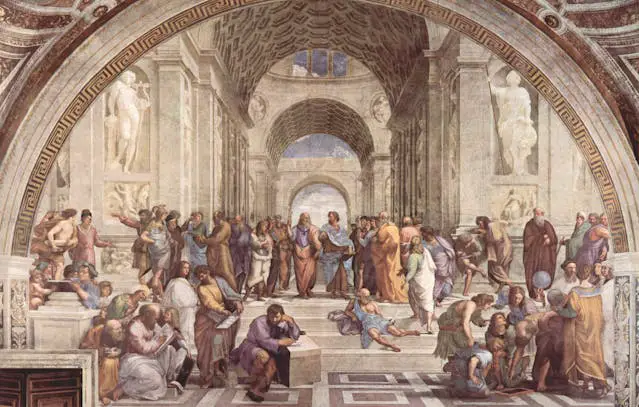
The Renaissance, a period spanning from the 14th to the 17th century, marked a significant turning point in human history.
This era, known for its artistic and cultural achievements, also brought about a revolution in scientific thinking.
In this blog post, we will explore the return to ancient wisdom, the rediscovery of ancient Greek and Roman texts, and the shift from blind faith in religious teachings.
We will also discuss pioneering discoveries across various fields, including astronomy, anatomy, and invention and technology.
A Return to Ancient Wisdom
Rediscovery of ancient Greek and Roman texts
The Renaissance scholars and intellectuals dedicated themselves to rediscovering and translating these ancient manuscripts.
Through their efforts, works by renowned philosophers like Plato and Aristotle, as well as scientific treatises by figures such as Euclid and Galen, were brought back into circulation.
These texts provided invaluable insights and served as a catalyst for intellectual curiosity and exploration.
- Read also: History of Science and Technology
- Read also: The Most Influential Inventions in History That Changed The World
Shift from blind Faith in religious teachings
Another significant aspect of the Renaissance was the gradual shift away from blind adherence to religious doctrines towards a more critical and questioning approach to knowledge.
This shift was fueled by the newfound access to ancient texts, which encouraged scholars to challenge traditional beliefs and explore new ideas.
As a result, there was a burgeoning interest in empirical observation, experimentation, and rational inquiry.

Pioneering Discoveries Across Fields
Astronomy
During the Renaissance, astronomy experienced a profound transformation with groundbreaking discoveries.
One of the most notable advancements was the invention of the telescope, which enabled astronomers to observe celestial bodies with unprecedented detail.
Additionally, Nicolaus Copernicus’ publication of his heliocentric model of the solar system revolutionized our understanding of the cosmos, challenging the geocentric view prevalent at the time.
Anatomy
In the realm of anatomy, Andreas Vesalius made significant strides with the publication of his masterpiece, “De Humani Corporis Fabrica” (On the Fabric of the Human Body).
This seminal work provided a comprehensive and accurate description of human anatomy through meticulous dissections, contradicting many erroneous beliefs held during that period and laying the groundwork for modern anatomical studies.
Physics
Although classical mechanics was not fully developed during the Renaissance, figures like Galileo Galilei played a pivotal role in laying its foundations.
Galileo’s groundbreaking experiments on inclined planes and falling objects challenged the prevailing Aristotelian physics, paving the way for Isaac Newton’s later formulation of the laws of motion.
Mathematics
In the field of mathematics, Renaissance mathematicians made significant strides in the development of algebraic notation.
François Vieta, among others, introduced a more symbolic approach to algebra, making complex mathematical equations easier to express and manipulate.
This innovation had far-reaching implications, contributing to the advancement of mathematics in subsequent centuries.
Invention and technology
The Renaissance era was also marked by remarkable inventions and technological advancements that reshaped society.
Chief among these was the invention of the printing press by Johannes Gutenberg, which revolutionized the dissemination of knowledge and ideas by making books more accessible to the masses.
This technological leap fueled the spread of Renaissance ideals, facilitating intellectual exchange and sparking further innovation across various fields.

The Impact of Renaissance Science
The Renaissance wasn’t just a pretty picture (or a well-sculpted statue).
The scientific advancements during this period had a profound and lasting impact, shaping our understanding of the universe and paving the way for future discoveries.
Here’s how Renaissance science sent ripples throughout society:
Shifting worldview
Challenged traditional beliefs
Scientific discoveries like the heliocentric model challenged the prevailing geocentric view of the universe, which placed Earth at the center.
This shift had a significant impact on religious and philosophical thought, prompting a reevaluation of established dogma.
Birth of skepticism
The Renaissance fostered a more critical and questioning approach.
People began to rely on observation and experimentation rather than solely on religious authority.
This shift in perspective laid the groundwork for the scientific method.
The foundation for modern science
Building blocks of knowledge
The discoveries of the Renaissance provided a springboard for future scientific exploration.
The work of anatomists like Vesalius provided a more accurate understanding of the human body, while astronomers like Copernicus laid the groundwork for our current understanding of the solar system.
Scientific methodology
The emphasis on observation and experimentation during the Renaissance contributed to the development of the scientific method, the systematic approach to research that underpins modern science.
Societal and technological advancements
Innovation and inventions
Scientific discoveries spurred technological advancements.
The invention of the printing press allowed for the wider dissemination of scientific knowledge.
Innovations like the telescope and microscope opened doors to new fields of study and discovery.
Medical progress
A better understanding of anatomy and physiology led to advancements in medicine.
This included new surgical techniques and a more effective approach to treating diseases.

- Read also: Who Invented Geometry? The History of How Geometry Invented
- Read also: Medieval Era Inventions: Shaping the Past and Influencing the Future
Conclusion
The Renaissance marked a significant turning point in human history, with its pioneering discoveries across various fields, including astronomy, anatomy, and invention and technology.
These advancements, driven by a return to ancient wisdom, the rediscovery of ancient Greek and Roman texts, and a shift from blind faith in religious teachings, had a lasting impact on our understanding of the world and laid the foundation for modern science.
FAQs
The Renaissance saw the invention of the telescope and the publication of Copernicus’ heliocentric model of the solar system, which revolutionized our understanding of the universe.
The rediscovery of these texts provided a wealth of knowledge on various subjects, including mathematics, astronomy, and medicine, which were crucial for the development of scientific inquiry.
The scientific advancements of the Renaissance paved the way for the Scientific Revolution, which further advanced our understanding of the world and laid the foundation for modern science.


